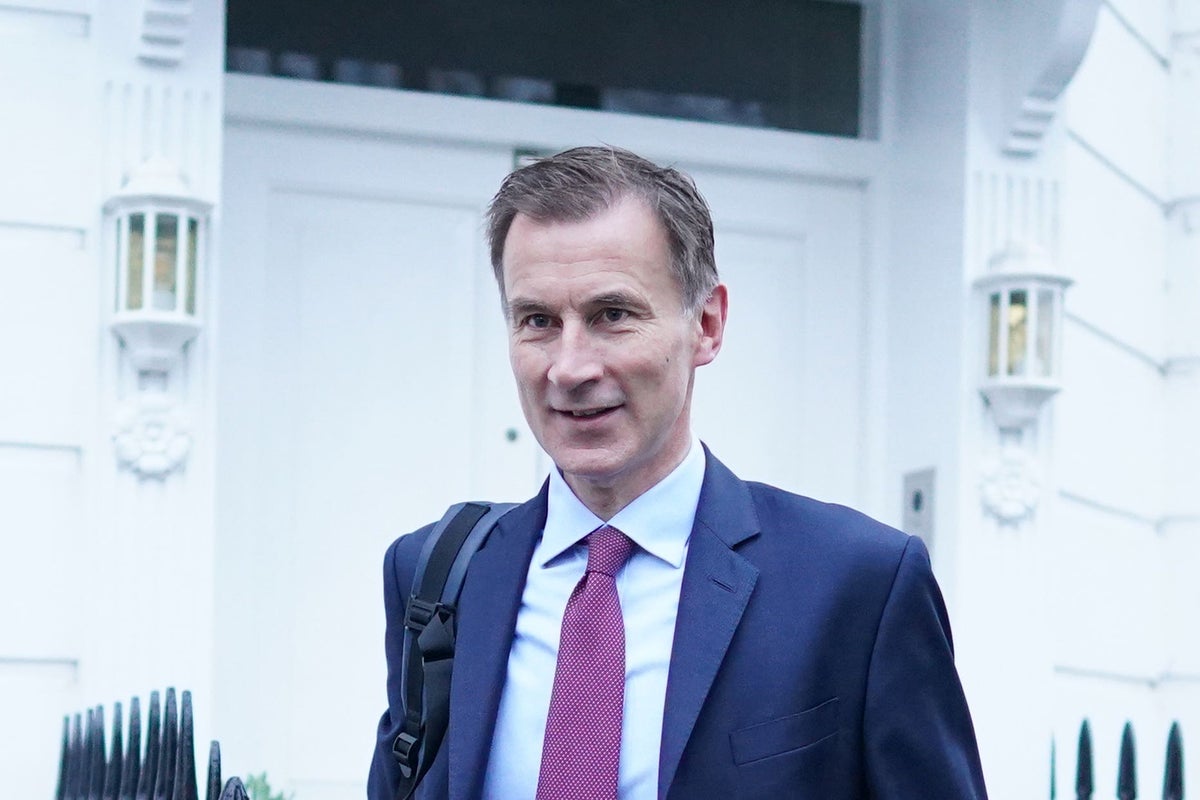
Chancellor Jeremy Hunt has delivered his Autumn Statement to Parliament laying out his plans to restore order to Britain’s public finances.
Mr Hunt succeeded Kwasi Kwarteng on 14 October, becoming Britain’s fourth Tory Treasury boss since the beginning of July, in the wake of the debacle that was his predecessor’s ill-conceived “mini-Budget” of 23 September.
Mr Kwarteng’s radical but uncosted tax-slashing agenda, reliant on heavy government borrowing, promised to deliver “growth, growth, growth” but instead spooked the international markets, tanked the pound, sparked chaos in the mortgage sector, prompted a dramatic intervention from the Bank of England to prop up pensions and brought a swift end to the premiership of Liz Truss, who has barely been seen in public since her humiliating exit from Downing Street.
Brought in to steady the ship at No 11, Mr Hunt shrewdly postponed an announcement originally planned by Mr Kwarteng to take place at Halloween to buy himself more time and make the job of tabloid headline writers more difficult.
He laid the groundwork for a fresh period of austerity by stressing the “difficult decisions” placed upon him and the need to “face into the storm” to ensure Britain’s long-term economic future is assured while remaining “compassionate” to the many needs of the present.
When he finally delivered his statement to Parliament on Thursday, Mr Hunt unveiled a package of tax rises worth £24bn and spending cuts of £30bn in order to plug a massive funding black hole in Treasury coffers and reassure the global financial markets that Britain remains a trusted trading partner.
His programme was tipped in advance to contain a number of “stealth taxes” to draw in additional revenue from income tax, national insurance, pensions savings, inheritance tax and VAT in the long to medium term.
But what exactly is meant by a “stealth tax”?
The phrase simply refers to any levy that is applied in such a way that it might not immediately be recognised as a tax hike but ultimately has the same impact.
It originated among Conservatives in the late 1990s as an attack line used to criticise elements of Tony Blair and Gordon Brown’s New Labour fiscal agenda.
For example, then-Tory shadow chancellor Francis Maude accused Mr Brown in October 1998 of imposing “stealth taxes... designed to conceal their effect” rather than directly raising the basic or top rates of income tax, which New Labour had pledged not to do in its election-winning manifesto a year earlier.
In Mr Hunt’s case, it is feared that several of the measures he announced on Thursday, such as freezing income tax thresholds, could amount to stealth taxes in the sense that, rather than immediately and directly raising the amount working people are expected to pay, the move could ultimately cause more middle-income families to be dragged into higher tax brackets by inflation and associated salary increases, meaning they will end up paying thousands more pounds in tax over the coming years.
Alan Thomas, UK CEO of Simply Business, responded to the Autumn Statement by warning of the “huge impact” the chancellor’s so-called stealth tax policies would have on Britain’s small businesses.
“Freezing national insurance and tax rates will erode the post-tax income of SMEs at a time when their recovery remains in the balance,” he said.
“Coupled with rising interest rates and inflation, this makes for a worrying combination – especially as a recession looms.
“What’s more, abandoning the assurances made by the last government on energy support for both individuals and small businesses will understandably leave owners concerned – with many already feeling the strain from soaring prices.
“Our study of over 1,000 small businesses revealed that many are concerned about their ability to make it through the winter. Small businesses account for 99 per cent of all British businesses, contributing trillions of pounds a year in turnover. The recovery of our economy and communities is directly linked to their prosperity.”
The chancellor‘s address to the House of Commons is being followed by the Office for Budget Responsibility (OBR) delivering its own briefing on Britain’s economic and fiscal outlook at 2pm.
With inflation at a 41-year-high of 11.1 per cent and the country already mired in a cost of living crisis, Paul Johnson, director of the Institute for Fiscal Studies, warned on BBC Radio 4’s Today programme on Thursday morning that deep gloom is likely to be the dominant mood of the day.
“We saw the Bank of England provide some really very miserable forecasts for the future of the economy last week and there is no question whatever that the OBR will be following suit with some miserable forecasts which are much worse than what they were suggesting back in March,” he warned.
The Independent will be covering all the latest fallout from Mr Hunt’s speech on our liveblog and bring you breakout stories throughout the day.







